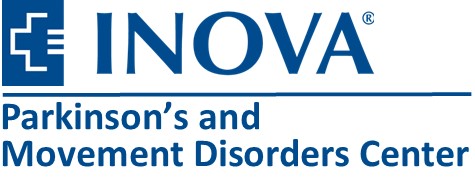Join us for #GivingTuesday. A “global generosity movement” that takes place on the Tuesday after Thanksgiving every year to ignite
Join us for #GivingTuesday. A “global generosity movement” that takes place on the Tuesday after Thanksgiving every year to ignite that generosity going into the holiday season.
At Kensington Senior Living, we believe in the power of giving to transform our community. Our mission is to improve and preserve the quality of life for every resident as well as their caregivers. To that end we have built strong relationships with medical professionals, organizations and community partners.
Join us this Tuesday, November 29th, for #GivingTuesday as we give back to these non-profit organizations that have kept us current with the latest advances in care, management and treatment of conditions that affect seniors and their families.
The Alzheimer’s Association leads the way to end Alzheimer’s and all other dementia — by accelerating global research, driving risk reduction and early detection, and maximizing quality care and support. As the largest nonprofit funder of Alzheimer’s research, the Association is committed to advancing vital research toward methods of treatment, prevention and, ultimately, a cure.

AlzAuthors write words that serve as caregiver handbooks, guides through the disease process, or a catalyst for much needed conversation. Managed by six daughters who have experienced the loss of a loved one with dementia, AlzAuthors serves the goal of making a difference in the dementia journey. AlzAuthors is a 501(c)(3) non-profit corporation since 2019.

Cedars-Sinai is a nonprofit academic healthcare organization serving the diverse Los Angeles community and beyond. With pioneering medical research achievements, education programs defining the future of healthcare, and wide-ranging community benefit activities, they’re setting new standards for quality and innovation in patient care.

HFC is a national non-profit whose mission is to care for families impacted by Alzheimer’s disease today, activate the next generation of Alzheimer’s advocates, and be a leader in brain health research and education. HFC was founded by Seth Rogen and Lauren Miller Rogen and some pretty great friends. The HFC In-Home Care Grant Program relieves caregivers, giving them time to rest, recharge and focus on their personal and professional life. Delivered with our partner, Home Instead, HFC’s Care Grants provide 3-6 months of free, professional, in-home care.

Be it Parkinson’s disease, essential tremor, dystonia or other movement disorders, the Inova Parkinson’s and Movement Disorders Center provides comprehensive care designed to get you moving again. Each person has his or her own unique brand of Parkinson’s, essential tremor, dystonia, Huntington’s disease or tic disorder and deserves a personalized treatment plan to address specific needs. Their experienced movement disorders team will work with you to chart a path to better health.

Institute on Aging works to enhance the quality of life for aging adults and adults living with disabilities, enabling them to maintain their health, well-being, independence and participation in the community. They provide innovative, community-based programs that enable our clients to live at home for as long as possible. They serve as an essential partner in the continuum of care by providing health services, social and emotional support, and education and advocacy. Institute on Aging’s 24-hour toll-free Friendship Line is the only accredited crisis line in the country for people aged 60 years and older, and adults living with disabilities. They also make on-going outreach calls to lonely older adults.

The Parkinson Foundation of the National Capital Area improves the quality of life of those impacted by Parkinson’s disease, their care partners and families, and fosters a sense of community to ensure that no one battles this disease alone. PFNCA offers exercise, communication and education programs to strengthen the physical and emotional health of people impacted by Parkinson’s.

Stanford Neurology has been a center of excellence for more than four decades and includes over 140 School of Medicine faculty members with primary academic appointments in the Department at our four outstanding teaching hospitals and health care systems.

The faculty of the Department of Neurology are distinguished scientists and clinicians who have been ranked #1 or #2 in NIH funding since 2002. The Department of Neurology is divided into disease-specific and method-specific programs including all of the major categories of neurological diseases and methods that include neurogenetics and neuroimaging as well as health services research.

The Keck School of Medicine is home to a vibrant scientific community where researchers and clinicians collaborate to create a continuous loop of care – truly embodying the bench to bedside ideal. The Keck School’s rigorous research portfolio spans basic, clinical, translational and population research and utilizes multi-disciplinary collaborations in order to provide solutions for the health problems facing local and international communities.

The UCSF Weill Institute leverages UCSF’s unrivaled bench-to-bedside excellence in the neurosciences. It unites three UCSF departments – Neurology, Psychiatry and Behavioral Sciences, and Neurological Surgery – that are highly esteemed for both patient care and research as well as the Neuroscience Graduate Program, a cross-disciplinary alliance of nearly 100 UCSF faculty members from 17 basic-science and clinical departments, which awards doctoral degrees in a variety of research areas. Also included is the UCSF Institute for Neurodegenerative Diseases, a multidisciplinary research center focused on finding effective treatments for Alzheimer’s disease, frontotemporal dementia, Parkinson’s disease, and other neurodegenerative disorders.

Founded by Maria Shriver, WAM is the preeminent organization focused exclusively on women and Alzheimer’s. We were created to raise awareness around Alzheimer’s as a disease that discriminates against women, since two out of every three brains that develop Alzheimer’s belong to women–with women of color at even higher risk– and 2 out of 3 caregivers of all races and ethnicities being women as well. Until 10 years ago, the conventional thinking was that the higher incidence of Alzheimer’s in women simply reflected the fact that women tend to outlive men.

November 29, 2022 All Day(GMT-05:00)